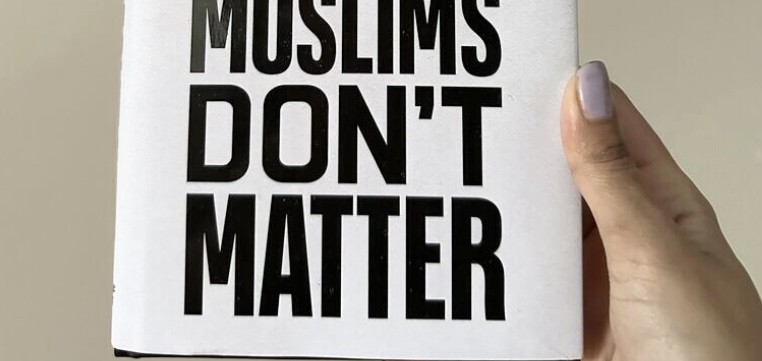
Here Rizwana Bi and Umma Miah share their thoughts on how they found Sayeeda Waris's latest book, Muslims Dont Matter. Discussing the core themes of the book and despite the provocative title, there is emphasis that indeed Muslims do matter. We just need to collectively work on dismantling the narratives that dehumanise Muslims, and that begins with speaking up and out.
Rizwana writes:
Sayeeda Warsi’s Muslims Don’t Matter is a bold and unflinching examination of societal and political marginalisation of Muslims in the UK. Warsi lays bare the pervasive Islamophobia embedded in policies, public discourse, and everyday interactions. By intertwining personal experiences with political critique, she adds a deeply human dimension to the systemic challenges she describes.
One of the book’s most striking themes is “respectable racism.” Warsi highlights how Islamophobia has become dangerously normalised. In politics, even calling it out can be career-ending. Her point about the UK’s failure to commemorate 15th March, the anniversary of the Christchurch attacks, exposes “Britain’s bigotry blind spot.” This silence is glaring and demands urgent accountability from those in power.
Warsi’s reflections on her experiences as a Muslim woman navigating political spaces will resonate with anyone who has felt the weight of representing an entire community. Her critique of political exclusion - where Muslims are framed as “the other” and excluded from the British identity narrative - feels both sobering and relatable. She dismantles the notion of a monolithic Muslim identity, showing how overlapping aspects of identity deepen the challenges faced by Muslims in Britain.
Chapter 2, in particular, is heavy with stark statistics and examples. It reveals how Muslims are viewed less favourably than almost any other group and are often denied agency in shaping policies that directly impact them. Instead, they are forced to protest simply to be heard. Warsi’s “dinner table test,” introduced in 2011, remains disturbingly relevant, highlighting how Islamophobia is tolerated even in supposedly liberal and polite spaces.
Muslims Don’t Matter doesn’t provide a step-by-step guide to fixing these issues, but instead delivers something more powerful: a call to action. It urges Muslims to take control of their narratives, be unapologetic in defining themselves, and resist letting Islamophobes dictate the conversation. Warsi’s message - to challenge the status quo and actively dismantle systems of inequality - is both urgent and empowering.
More than a critique, this book is a powerful reminder of the importance of reclaiming our stories. It challenges us to rethink belonging - both in how we define it for ourselves and in creating space for others. In a time of increasing polarisation, Muslims Don’t Matter is an essential contribution to the discourse on justice, inclusion, and the fight for a society where all voices are heard and valued.
I found her observation that ‘Islamophobia suffocates authenticity’ particularly poignant, as it perfectly encapsulates the exhausting tightrope of staying true to yourself while navigating others’ prejudices. Yet, the book makes clear that this isn’t just about individual struggle; it’s a collective reckoning with systemic challenges.
Umma writes:
It’s a slippery road we’re on. Populism is booming, politics is divisive, and democracy is selective. This is where our voices matter. We need to speak out against the unashamed use of inflammatory language that is a catalyst of discord and hatred. We have already seen from the recent general elections and summer riots, how commonplace far-right language is becoming in all social spheres. Therefore, being audacious in our writing, using language that is provocative, and challenging is a must.
Sayeeda Warsi’s latest book, Muslims Don’t Matter does this boldly. Her book does not hold back in naming politicians who have contributed to the shaping of anti-Muslim prejudice. She discusses how attempts to define Islamophobia were thwarted by the previous government. Taking a closer look at the three spheres of society: political, economic and cultural, Warsi has shown the ways in which Muslims don’t matter. These three words are continuously repeated throughout the book, done so deliberately to engage the reader to understand the gravity of anti-Muslim rhetoric.
Warsi states from the outset that she will not explain or caveat anything, but finds herself ‘being drawn into doing precisely that: clinging to facts, statistics and academic works to justify myself’. I guess, like many of us, the voice of the ‘other’ can only be meaningful when we are powered with a truckload of evidence and knowledge.
Don’t expect this book to be filled with a stream of advice and actions on what can be done to make Muslims matter, otherwise you will be disappointed. Arguably, it can be said the book simply trots out existing narratives on the dichotomising stereotypes of Muslims. And also, confirms what we have always known about Islamophobia being the one that shall not be named within political parties and the Parliament. However, until the narrative changes, we must continue writing and speaking about the way Muslims are portrayed and perceived. We must continue sharing personal experiences of what it is like to be a Muslim woman in this hostile climate that perpetuates Islamophobia. Be part of conversations that cut across the lines of division. Be engaged in spaces where your very presence challenges the social and racial hierarchy.
Though it’s implicit the chapter, Blind Injustice shows that remaining silent isn’t a safe option. Because in choosing silence would be acceptance of state sponsored discrimination and speaking out is upholding justice. And so, I will be taking on Warsi’s advice ‘be brave enough to say I’m done. Say that you have no right to hold me accountable..do not be backed into a corner by the disingenuous, the prolific offender, the Islamophobe. Tell our fellow Brits exactly how you feel. Tell your story on your terms’.
I don’t think, Warsi’s book, will pass either Braverman or Gove’s dinner table test, but it sure will make for an interesting conversation at yours. We certainly had plenty of discussions at the office.
Join Our Movement
Raise your voice and get connected

 2
2